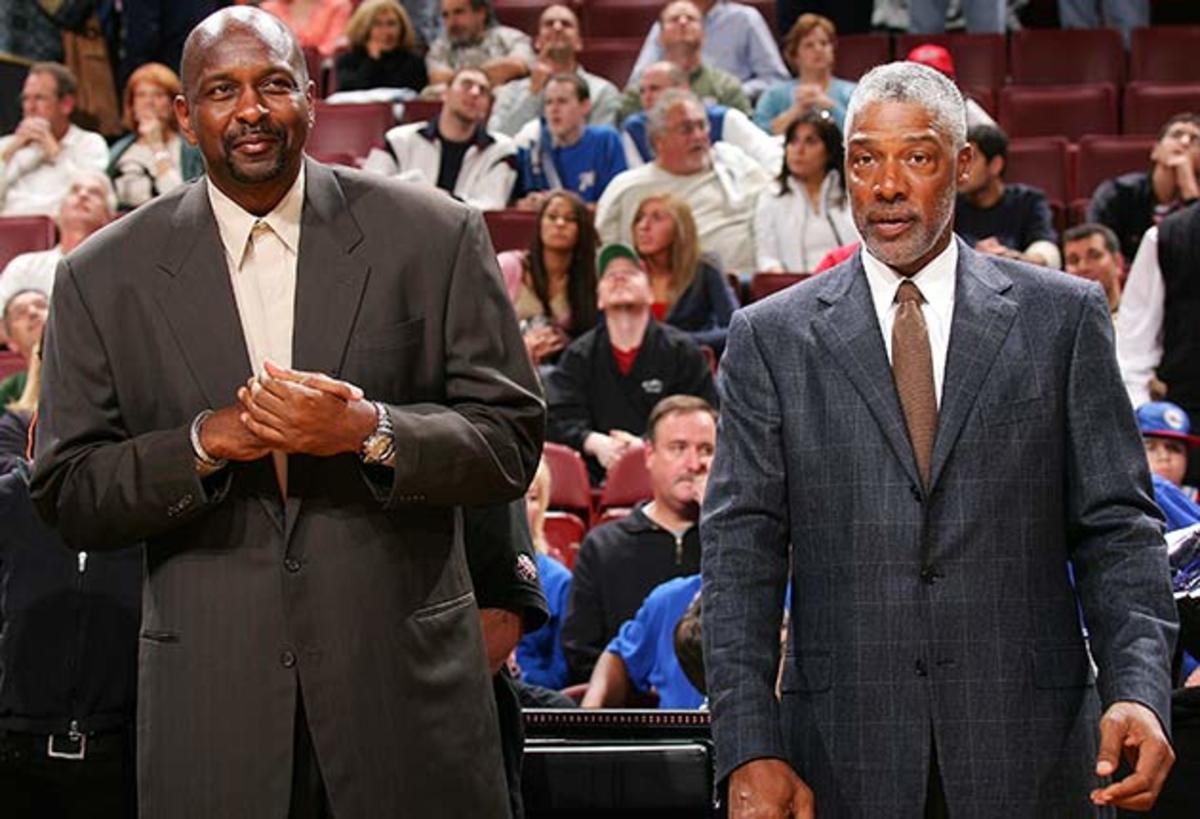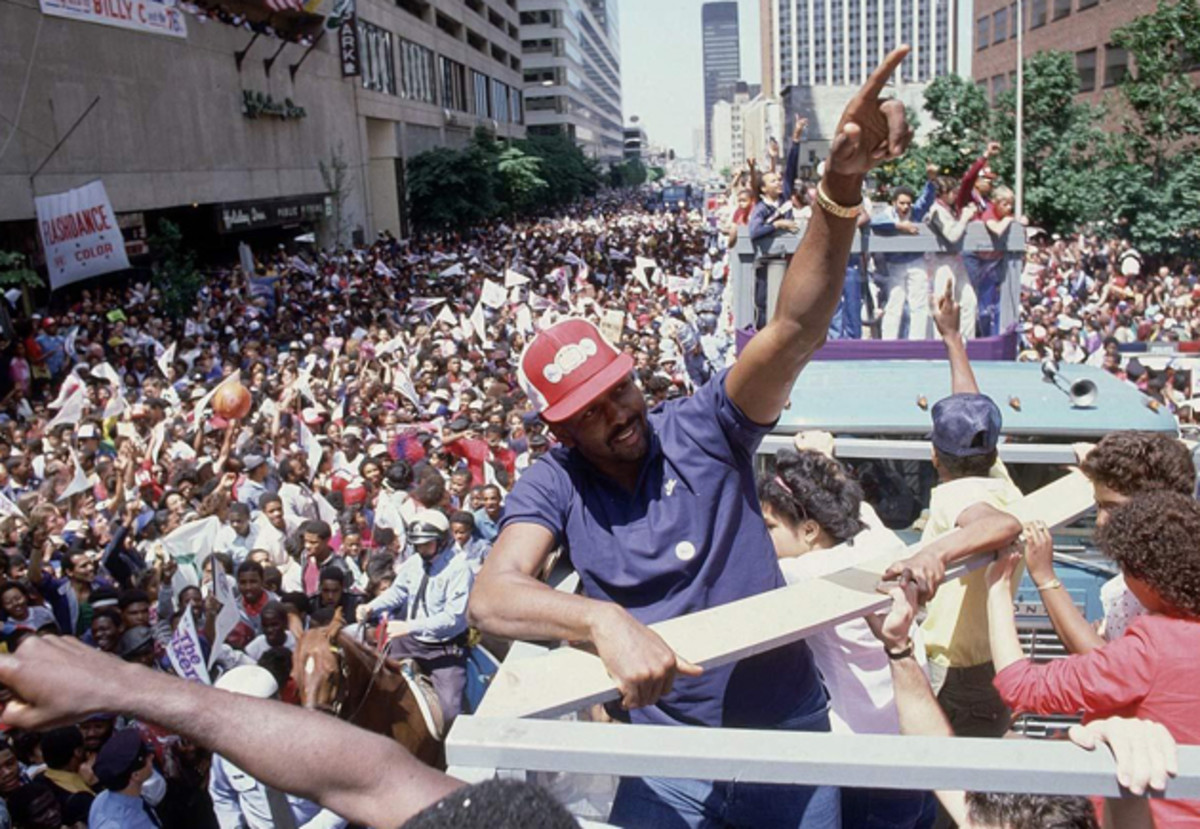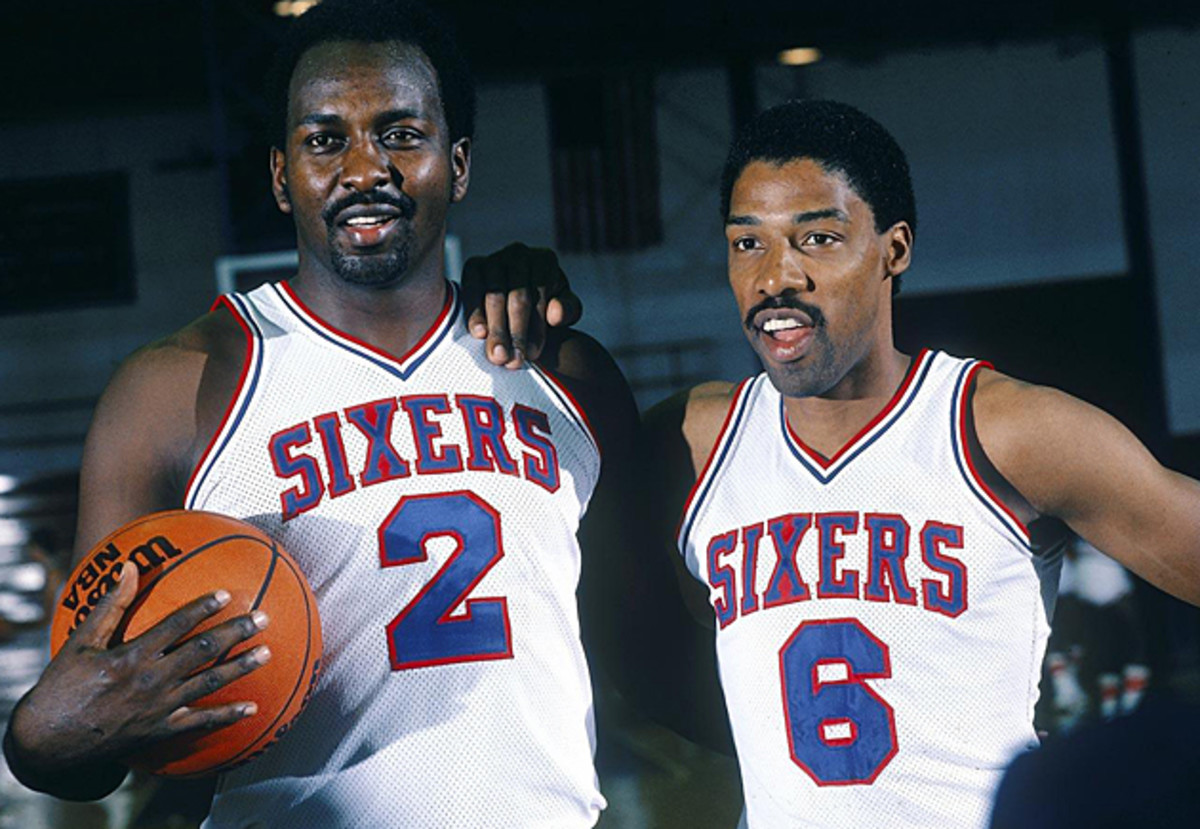“Memories are forever”: Dr. J reflects on Moses Malone's birthday

Get all of DeAntae Prince's columns as soon as they’re published. Download the new Sports Illustrated app (iOS or Android) and personalize your experience by following your favorite teams and SI writers.
Julius Erving played for a tight-knit 76ers team that always found time to recognize special occasions.
Erving remembers spending multiple birthdays with Moses Malone over the course of their four seasons together in Philadelphia. They both celebrated their personal holidays during the second half of the NBA season—Erving on Feb. 22 and Moses on Mar. 23—when teammates became surrogate family members for players chasing postseason glory.
Erving continued the tradition long after his career ended, maintaining a list of friends he checked in with and sent well wishes. As time wore on, he noticed the list growing shorter. Erving became acutely aware of that fact this March, as the day that would have marked Malone’s 61st birthday approached.
“As we get closer to his, I think there will be a moment for a silent prayer,” Erving says, “and it marks the first time of him having a birthday and not being here to call and say, ‘Hey, man, happy birthday.’
“I do that with all my friends, call them on their birthdays and text them, and they do the same to me. He was on that list. I look at him and Darryl Dawkins and Caldwell Jones, three guys that I played in Philly with. Willie Sojourner is on that list as well, and they’re all gone.”
Malone died on Sept. 13 due to cardiovascular disease at the age of 60, less than a month after Dawkins died from a heart attack at 58.
“They passed before me, but there’s a statement to be said about our own mortality, and that there’s nothing in life that you should take for granted,” Erving said. “You just move on and try to do good by yourself and by your family and by people. And appreciate the time that we have.”

Erving valued the time he spent with Malone, from the moment he welcomed the 19-year-old Virginia native to the old ABA to the years they spent together as Sixers.
In fact, Malone helped Erving win a battle before they ever took the floor together. Over the course of 11 professional seasons, Erving learned to harbor a certain disdain for Boston players and Boston people. Celtics forward M.L. Carr did nothing to help Erving break from this pattern in the summer of 1982, when he was “being his annoying self” during a basketball tour of China.
Carr’s verbal barrage, which centered on Boston knocking Philadelphia out of the previous postseason, ended when Malone, the league’s reigning MVP, was traded to the 76ers in the middle of the trip.
• MORE NBA:Classic photos of Moses Malone | Rare photos of Dr. J
“Man, you ever seen a black guy turn white?” Erving said, laughing. “He got pale and said, ‘I can’t believe that. They just gave y’all the Eastern Conference and maybe the whole thing.’ And truer words had not been said because his prediction came true.”
Before Malone could become entrenched within the city of Philadelphia, an early lesson about his new home came in a parking lot, not on the basketball court. Malone, who stood 6’10” and drove a convertible, decided to leave shirts in his car. The shirts were gone when he returned from practice.
“He got the royal welcome,” Erving said. “But it’s not always how it starts, it’s how it ends, and the way it ended was with a parade down Broad Street with that single finger raised up in the air.”

Erving and Malone were an instant hit, leading Philadelphia to a 65-17 regular season and a first-round bye in the 1983 playoffs. But before the postseason tipped off, Moses was asked what it would take to win an NBA title and the famous, ‘Fo, Fo, Fo’ quote was born.
“He wasn’t making a prediction,” Erving said. “It was just a statement of fact. We were the top seed so we had a bye in the first round and we needed to win three rounds. So he was basically saying you needed to win four games in each of those rounds to be crowned the champion and when it was adapted and made into a song it was just great. It just heightened his legend, so that was pretty sweet.”
• Listen and subscribe to Open Floor Podcast on iTunes and SoundCloud
Context aside, Moses was forever remembered for the quote and made good on his plan to lead the Sixers to a title alongside Erving. Philadelphia went 12-1 en route to the only NBA championship either player would capture.
Erving made his seventh straight All-Star Game and Moses was crowned the regular season and Finals MVP. Erving is quick to drop names of players who affected his career and helped the Sixers win, but he notes that Moses defined a period when the asterisk was lifted from his legacy.

said, “not only for me personally and my teammates and for our organization, but for the city of Philadelphia, and the last time there was a championship in Philadelphia was 1983.”
• MORE NBA:SI Vault: How Moses became the game's best rebounder
Malone went into the Basketball Hall of Fame in 2001 as a member of the Sixers, even though he spent extended time with the Rockets, Hawks, Bullets and Bucks. He bounced around, but Malone found success wherever he went, winning three MVPs over the course of his career and retiring as one of the greatest players in league history.
“I think he was underappreciated because he did play with multiple teams and he did things his way, sort of like the Frank Sinatra of basketball,” Erving said. “He had his own values and beliefs and methodology.”
Erving had Malone anecdotes and stories at the ready as he reflected on old teammates. With Malone’s birthday looming, Erving said his mind wandered and fixated on moments far in his past.
“But those times have passed,” Erving said, “and time marches on but memories are forever.”
